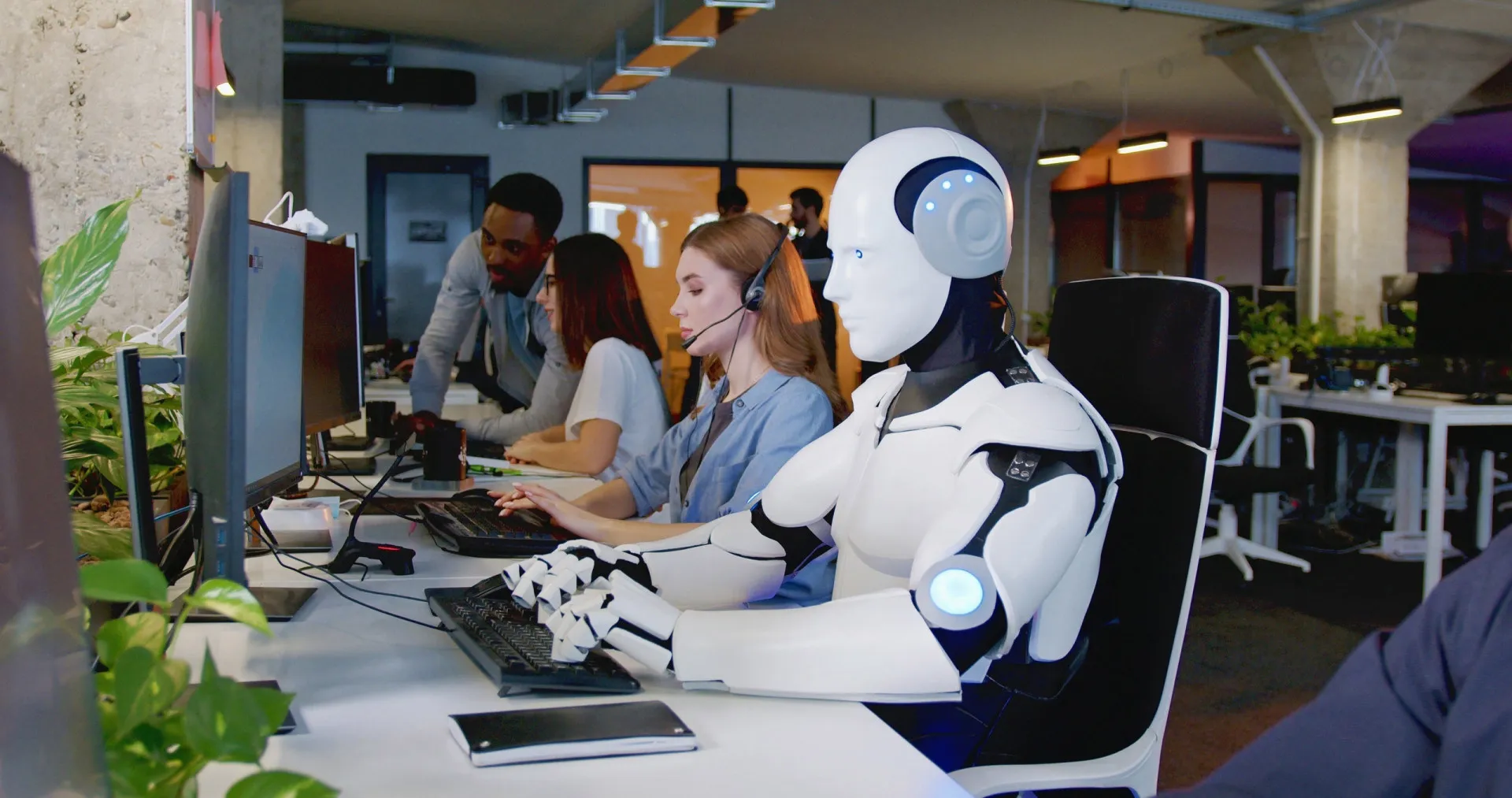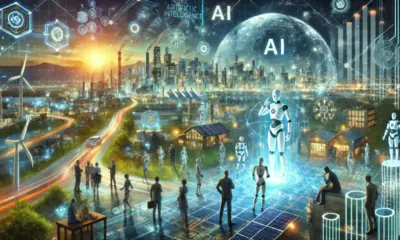Trending
AI Job Shift London Workforce Adapts to Automation Challenges

As artificial intelligence continues to reshape industries worldwide, London has emerged as a key testing ground for how workers, companies, and policymakers can adapt to a rapidly changing employment landscape. Automation is transforming how businesses operate, from finance and logistics to retail and customer service, raising both opportunities and challenges for the capital’s diverse workforce. While AI is expected to boost productivity and innovation, it is also forcing employers and employees to rethink job structures, training programs, and the very definition of work in the digital age.
Automation’s Impact on London’s Labor Market
Recent studies from the UK’s Office for National Statistics estimate that nearly 25 percent of jobs in London could be affected by automation by 2035. Roles in transport, finance, and administrative support are most at risk, as companies increasingly adopt machine learning systems and robotic process automation to streamline operations. Yet experts caution that automation does not necessarily mean widespread unemployment. Instead, the shift is creating new categories of work that demand different skills and competencies.
London’s financial sector illustrates this duality. Banks and investment firms are integrating AI systems for fraud detection, data analytics, and portfolio management. These tools are reducing repetitive manual work while generating new positions in algorithm design, data governance, and compliance oversight. Similarly, logistics and e-commerce companies are using robotics to optimize supply chains, creating demand for technicians and engineers skilled in maintaining automated systems.
However, the transformation is not without challenges. Many mid-level roles are being redefined or phased out, leaving workers in need of retraining. A 2025 report by the London Chamber of Commerce revealed that 60 percent of medium-sized businesses are struggling to fill AI-related technical positions, underscoring the widening gap between existing skills and emerging job requirements. The city’s education and training institutions are now playing a central role in bridging this divide.
The Mayor of London’s office has launched several initiatives to prepare residents for the AI-driven economy. Programs such as the London Digital Skills Fund and the Tech Talent Partnership aim to provide retraining opportunities in coding, data literacy, and cybersecurity. These efforts reflect a growing recognition that lifelong learning will be essential to maintaining employment stability in an era of constant technological evolution.
Upskilling and the Human-AI Partnership
While automation has replaced some routine and manual tasks, it has also elevated the importance of uniquely human skills such as creativity, emotional intelligence, and critical thinking. In sectors like healthcare, education, and media, AI is being used to augment human performance rather than replace it. For example, hospitals are deploying AI systems to analyze diagnostic images, but doctors remain responsible for interpretation and patient interaction. In education, adaptive learning platforms help teachers customize lessons to individual needs, improving outcomes without diminishing the human role in instruction.
London’s creative industries, one of its fastest-growing economic sectors, are also adapting to automation in innovative ways. From digital marketing to film production, AI tools are assisting in content creation, audience analytics, and design processes. Far from undermining creativity, these tools are expanding artistic possibilities and enabling professionals to focus on high-level strategy and storytelling.
A growing number of companies are embracing hybrid workforce models that combine automation with human oversight. Employers are discovering that AI systems perform best when guided by experienced professionals who can provide context, ethics, and intuition, qualities machines cannot replicate. This collaboration between humans and intelligent systems is redefining productivity and creating a new balance of labor across industries.
However, as AI becomes more integrated, ethical considerations have taken center stage. Policymakers are introducing guidelines to ensure transparency in algorithmic decision-making and to prevent bias in automated recruitment or performance evaluation systems. The UK government’s AI Governance Bill, expected to take effect in 2026, will require organizations to conduct regular impact assessments to ensure fair and responsible AI usage.
Economic and Social Adjustments
The economic implications of automation extend beyond individual employment to the broader structure of London’s economy. Sectors that embrace AI early are likely to see accelerated growth, while others risk stagnation without sufficient investment in technology and training. To balance these effects, government and industry leaders are collaborating on policies to encourage innovation while protecting workers’ rights.
One proposed initiative involves offering tax incentives for businesses that invest in employee upskilling and reskilling programs. Such measures aim to ensure that automation leads to inclusion and opportunity rather than inequality. There is also growing discussion about adopting flexible working arrangements and alternative income models, such as universal basic income, to cushion workers affected by technological displacement.
Socially, the AI job shift is prompting a cultural reevaluation of what constitutes meaningful work. Surveys suggest that younger generations are more open to job mobility and continuous learning than previous cohorts, viewing technology not as a threat but as a tool for career reinvention. Meanwhile, labor unions and advocacy groups are pushing for greater representation in the policy discussions surrounding automation to safeguard fair wages and working conditions.
London’s global reputation as a hub for innovation gives it a unique advantage in navigating this transition. The city’s concentration of tech startups, research institutions, and multinational headquarters provides a strong foundation for experimentation and adaptation. If managed effectively, the AI revolution could position London as a model for how major urban economies can balance technological advancement with social stability.
Conclusion
The rise of automation is not the end of work in London, it is the beginning of a new era defined by adaptability, lifelong learning, and collaboration between humans and machines. While the challenges of displacement and inequality are real, so too are the opportunities for innovation and economic renewal.
As artificial intelligence continues to evolve, London’s success will depend on its ability to equip its workforce with the skills and flexibility needed to thrive in a digital economy. By embracing change with foresight and inclusivity, the city has the potential to turn the AI job shift into a story not of disruption, but of resilience and progress.






















